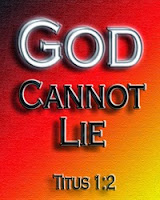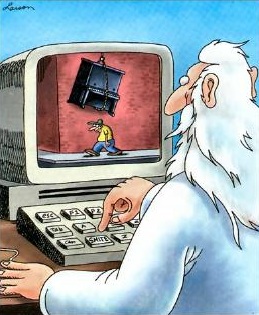Introduction
Evil and suffering are making their existence painfully known in our world. Whether we realize it or not or intend to do it or not, evil, pain, and suffering do cause us to reflect philosophically on their meaning and purpose. At some (breaking) point, they force us to ask deep philosophical questions of life:
- Why me? Why now?
- Is God really there?!
- If he is, does he really care about my suffering?
- What purpose could he possibly have for my suffering (not to mention everyone else's too)?
Why Suffering In the Life of the Unbeliever?
For many of us, it takes a profound, painful event or series of painful events that cause us to seek answers to the deeper questions. God desires to be known, and if there are any experiences that would cause us to diligently seek him, we can expect that those experiences would enter our lives."Anyone who comes to him must believe that he exists and that he rewards those who earnestly seek him."- Hebrews 11:6b
When we reflect upon the philosophical questions triggered by evil, pain, and suffering, and we honestly search for an explanation to make sense of them, we are earnestly seeking answers. No one can escape the questions of purpose ("why" questions) without considering a Purposer (God) as an explanation. When we consider God's existence in the faces of evil, pain, and suffering, we cannot merely consider His existence on emotional grounds. Logical and evidential grounds are demanded as well.
"I have found that the more I reflect philosophically on the attributes of God the more overwhelmed I become at his greatness and the more excited I become about Bible doctrine. Whereas easy appeals to mystery prematurely shut off reflection about God, rigorous and earnest effort to understand him is richly rewarded with deeper appreciation of who he is, more confidence in his reality and care, and a more intelligent and profound worship of his person."- William Lane CraigThe evil, pain, and suffering that we experience in life has the ultimate purpose of bringing us into a loving relationship with the Creator and Savior that will last for eternity. The evil, pain, and suffering that we experience must be seen in light of Jesus' death and Resurrection. Hebrews 11:6a states that without faith it is impossible to please God. But the faith that is described here is not a blind leap into the dark; it is a trust based on evidence of the historical event of the Resurrection of Jesus Christ.
The evil, pain, and suffering in your life has brought you to examine the evidence of the reason for the evil, pain, and suffering of Jesus Christ. It is in the light of Jesus' suffering, death, and Resurrection that our suffering makes sense and is given an eternal purpose. God was faithful in the past; He is the same throughout eternity; therefore, God will be faithful in the present and in the future. You can reasonably trust Him with your life now and in the future.
Conclusion
God has a purpose for the evil, pain, and suffering in our lives- "...Our present sufferings are not worth comparing with the glory that will be revealed in us" (Romans 8:18). If the suffering in this finite life brings you to Christ or closer to Him, then what comes of that finite time of suffering will continue into eternity, an infinite amount of time without suffering and only with pure joy.For more:
















